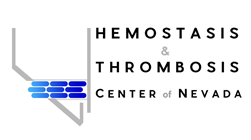Bleeding disorders are a group of disorders that share the inability to form a proper blood clot. Symptoms include extended bleeding after injury, surgery, trauma, or menstruation. Sometimes the bleeding is spontaneous, without a known or identifiable cause. Improper clotting can be caused by defects in blood components such as platelets and/or clotting proteins, also called clotting factors. The body produces 13 clotting factors. If any of them are defective or deficient, blood clotting is affected; a mild, moderate or severe bleeding disorder can result.
Some bleeding disorders, such as hemophilia, can be inherited or acquired. Others can occur from such conditions as anemia, cirrhosis of the liver, HIV, leukemia, and vitamin K deficiency. They also can result from certain medications that thin the blood, including aspirin, heparin, and warfarin.
Although men and women with bleeding disorders have similar symptoms, such as bleeds into joints and tissues, women can experience added complications during menstruation, pregnancy, labor and delivery. Some doctors are not familiar with bleeding disorders in women, resulting in many of women going undiagnosed or misdiagnosed. Learn more about women with bleeding disorders here.
Symptoms of Bleeding Disorders
Symptoms of a bleeding disorder include:
- Bleeding into joints, muscles and soft tissues
- Excessive bruising
- Prolonged, heavy menstrual periods (menorrhagia)
- Unexplained nosebleeds
- Extended bleeding after minor cuts, blood draws or vaccinations, minor surgery or dental procedures
If you experience these symptoms, check out Better You Know to determine if you are at risk for a bleeding disorder.
Treatment
Treatment for bleeding disorders varies, depending on the condition and its severity. For some bleeding disorders, there are clotting factor concentrates that can be infused prophylactically or on-demand at home, to prevent or treat bleeds. Some women with bleeding disorders may use hormone therapy (birth control pills) to manage heavy periods. For other bleeding disorders, there are topical products, nasal sprays, and fresh frozen plasma, which is administered in a hospital setting.
History
Mentions of what could now be described as a bleeding disorder were first recorded hundreds of years ago and have been shaping the world ever since. Click the button below to see what bleeding disorders have to do with the Bible, Rasputin, and the spread of HIV.







